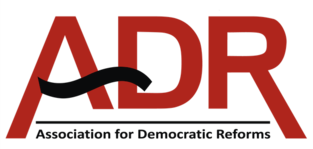A bench headed by Chief Justice of India HL Dattu also sought the political parties' views on making it mandatory for them to declare all donations, which also include those below Rs 20,000

Kindling hopes of bringing transparency in the functioning of major political parties, the Supreme Court on Tuesday asked six national parties, including BJP and Congress, why they cannot be declared as public authorities and brought under the ambit of the Right to Information (RTI) Act.
A bench headed by Chief Justice of India HL Dattu also sought the political parties' views on making it mandatory for them to declare all donations, which also include those below Rs 20,000. Nationalist Congress Party (NCP), Communist Party of India (CPI), Communist Party of India (Marxist) and Bahujan Samaj Party are the other parties whose responses have been sought by the apex court. The bench also issued notices to the Election Commission of India and the Centre. All of them have been asked to file their replies within six weeks.
Representing the petitioner - NGO Association for Democratic Reforms - noted lawyer Prashant Bhushan told the bench that he was forced to approach the apex court because the political parties were not complying with the June 2013 order of the Central Information Commission (CIC) that had declared the "parties public authorities under section 2 (h) of the RTI Act, after they which they had to furnish whatever information sought by the public".
|
|
He told the court that the CIC could not even act against the parties, which did not even send their representatives before it as the commission did not have the power to issue contempt action. After listening to Bhushan, CJI Dattu said, "Oh! they do not have contempt powers? Not even inherent contempt powers? Then we are issuing notice."
Bhushan claimed that the political parties received huge sums of money in form of donations and contributions from By Harish V Nair in New Delhi corporates, trusts and individuals, but do not disclose complete information about the source of such donations.
Bhushan also claimed that political parties enjoyed a stronghold over their elected MPs and MLAs under Schedule 10 of the Constitution, which makes it compulsory for members of either Houses of Parliament or state legislatures to abide by the directions of their parties, failing which they stand to be disqualified.
The petition also seeks complete financial transparency of political parties. The petition said the election commission should be asked to collect all finances of political parties and put the same on the public domain.
"All parties should also be mandatorily asked to disclose complete details about their income as well as expenditure, entire details of donations and funding received by them, irrespective of the amount donated, and full details of donors making donations to them and to electoral trusts," the PIL said.
Meanwhile, the Congress, referring to the notice issued by the Supreme Court to bring political parties within the RTI ambit, said that it would be the first party to adhere to the apex court's directions.






